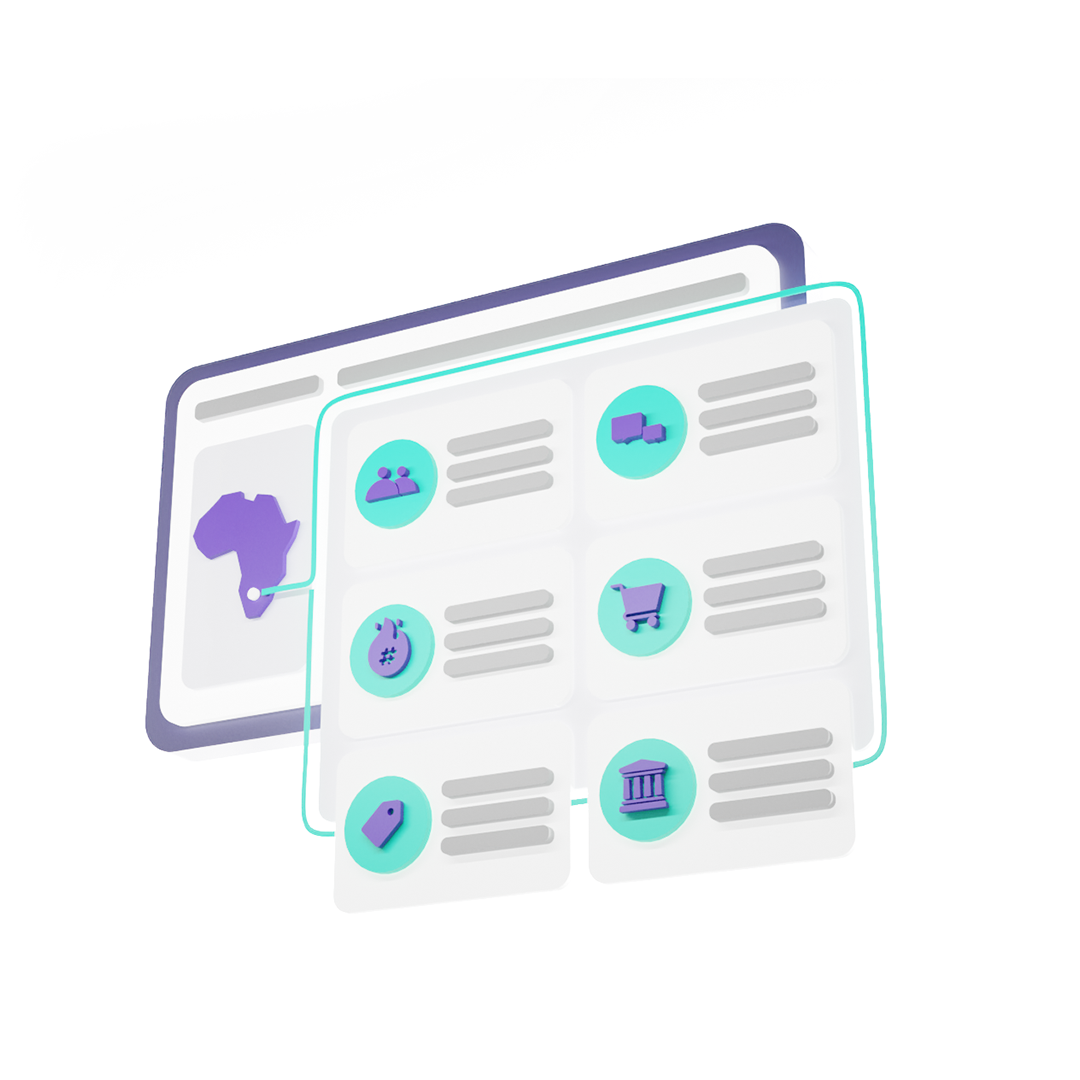In recent memory, Africa has been facing one of the most challenging economic environments: a slow recovery from the pandemic, rising food and energy prices, and high public debt levels. One of the most pressing issues confronting the region is the need to combat decade-long high inflation, which is wreaking havoc on income and food security while supporting growth. As a result, businesses in the region are interested in learning how to win in Africa amidst these challenges.
While there are significant differences between countries, the region’s median inflation rate increased to nearly 9% in July (IMF). Moreover, while the upsurge has been less dramatic compared to other parts of the world, and the drivers are different, inflation almost doubled pre-pandemic levels, threatening social and political instability and worsening food insecurity.
Despite a rebound last year, the pandemic’s aftermath has kept domestic economic activity in the continent relatively muted, and the region’s growth is expected to slow this year. Most countries in Africa have lacked the resources to support and stimulate growth, in stark contrast to richer countries elsewhere, which have trillions of dollars to invest in their economies.
Price pressures
With food and energy accounting for most of the household consumption in Sub-Saharan Africa, living costs have risen across the region. Russia’s war in Ukraine has exacerbated regional food insecurity by lowering incomes, obstructing global supply chains, and raising food and agricultural input prices. According to the IMF, 12% of the region’s population will be food insecure by the end of this year.
As a result, many countries have turned to subsidies and tax cuts to help alleviate the squeeze on household incomes. However, these measures are temporary and should be well-targeted to maximize their impact while minimising their cost on already-strained budgets.
Central banks throughout the region had already begun raising interest rates in response to rising inflation, capital outflows, and currency depreciation caused by advanced economies’ tightening monetary policy. Ghana, Malawi, Mozambique, Nigeria, Uganda, and the Central and West African economic and monetary unions are examples.
How are businesses affected?
The National Federation of Independent Businesses (NFIB) of the United States reported in its February 2022 survey of small business owners that 26% of respondents identified inflation as their single most significant problem, more than any other. In the previous year, only 2% said inflation was their biggest problem. What has changed?
Of course, inflation has risen in the intervening year. For many months, the economy was shut down due to the COVID pandemic, allowing people to save money. When the economy reopened, there was, as economists like to say, “too much money chasing too few goods.” That misalignment is expected to correct itself over time, but inflation has already outlasted economists’ expectations.
Politicians in the region have also been accused of storing embezzled funds in raw cash because funds in bank accounts are traceable. The CBN recently gave people in Nigeria deadlines to take their cash to Deposit Money Banks as the top three Naira denominations were changed, and the old ones would soon become worthless. In addition, the Nigerian Apex Bank issued a new statement regarding cash withdrawal limits, the first of its kind in the country’s history. Governments are raising interest rates to combat inflation, and the economy’s future direction is uncertain.
Is the impact of inflation the same for all businesses?
Inflation does not affect all businesses equally. Price increases will not affect demand as much as they would for an optional good when customers rely on a business and, by preference or happenstance, are less willing to shop around. As a result, many businesses, such as grocery stores, healthcare providers, childcare providers, and tax professionals, are thought to be recession-proof. However, with discretionary goods, a purchase that can be postponed until next month — or longer — will most likely be.
Inflation has less impact in the following situations:
Essential goods and services suffer less damage.
Generally, when prices rise, demand for essential goods does not change significantly. Many workers, for example, require fuel to get to work and are more likely to postpone other purchases rather than let their tanks run dry. When prices rise, customers prioritise their essentials before spending their weakening purchasing power on discretionary items like entertainment or vacations. Businesses that provide essential goods and services are less vulnerable to inflation. You can see this play out in our Nigerian Spending Power Report.
Less competitive markets are less affected.
If customers have few options, a price increase may not be enough to entice them to spend their money elsewhere. Consider a small town with a single grocery store. If the price of fruits rises due to inflation, residents may have few other options for food. They’re more likely to pay higher prices than drive to another town to compare prices, especially if fuel prices rise in tandem with the cost of those items. Businesses that rely on a single supplier may have a similar encounter and be forced to pay higher prices for their products, except they diversify their supply and find competing suppliers who can beat the rising prices.
Businesses are protected by well-known brand power.
All else being equal, businesses with a loyal customer base are less affected by inflation. Inflation affects prices in the competitive set proportionally, which makes it less likely that loyal customers will change their preferences. Customer loyalty shows a business’s ability to keep its customers even when prices rise. But beware: every customer has a tipping point where a substitute becomes viable. In addition, brand switching increases when supply chains are interrupted, as they have been in recent years.
How can businesses ensure customer loyalty and maintain popularity in their market niche? Four simple steps: Excellent customer service, adequate marketing strategies, relevant advertising campaigns, and a dependable Ad-intel exercise to assess the effectiveness of those ads.
How can businesses win in Africa in the face of global inflation?
The good news is that while you cannot control inflation, you can influence how it affects your business. Continue reading to learn how to protect your company from rising costs in the coming months and win in Africa.
Review your prices
The inflation period is the time to review your pricing strategy and decide whether to raise prices to keep up.
To begin, compare your offerings and prices to those of your competitors to determine whether a price increase makes sense for your company. Are you providing higher-quality goods or services at a lower cost? As a result, your customers may be more than happy to accept your new price since you provide value.
Just be cautious about how you communicate these price increases to your customers. Otherwise, you risk alienating valuable supporters at a critical juncture in your company’s history.
Optimize your product offers or revenue stream
Instead of raising your prices, you could concentrate on selling more popular products to customers or with higher profit margins.
Begin by reviewing your offerings and determining which ones are the most profitable for your company. If you’ve been affected by rising costs, now is an excellent time to see which companies have lower profit margins.
Also, assess factors that may impact your products delivery in today’s economy, like supply chain problems or employee turnover. Reduce or eliminate lower-profit offerings as necessary to reallocate resources to those that will generate more revenue.
Finally, ensure you understand how these modifications will impact your business in the short and long term. Inaccurate forecasting (or a lack thereof) could cost you your business.
Leverage outsourcing to increase efficiency and productivity
Most businesses will want to be strategic in using their funds during times of higher inflation. The more lean your operations are, the better. In addition to evaluating your pricing strategy and product offerings, consider ways to do more with less in your business.
Professionals should be hired to handle strategic activities such as market research. This is not the time to experiment with such projects on your own. You want to avoid exposing your company to the consequences of inaccurate or tampered data. This is why in addition to being a leading market research company in Africa, we have a blog dedicated to other Africa’s top market research firms that you can read.
Diversify your supply chain
Keep your supplies diversified, especially if you generate most of your revenues from physical products. At the start of the COVID-19 pandemic, organizations worldwide saw their supply chains decimated as their suppliers also experienced issues.
Learn from their mistakes (or, if you’re in this situation, your own) by diversifying every step of your supply chain.
When you have multiple suppliers, you are not disadvantaged if one of them experiences delays or raises its prices. You’ll also be better positioned to negotiate with them for lower rates or better terms during periods of high inflation.
Be observant in securing business funding
Consider switching any adjustable-rate debts to fixed loans as banks raise interest rates to recompense inflation. Inflation may increase the cost of adjustable-rate loans, whereas fixed-rate loans will decrease in price as cash devalues. An expanding company may be able to borrow the funds needed to support its expansion early in an inflationary cycle. This is considerable if inflation is expected to remain high. The cost of that borrowing will fall over time, providing the company with a potential competitive advantage.
Conclusion
Worry and uncertainty are frequently associated with periods of inflation. On the other hand, a well-prepared business can get a head start on the steps required to weather such a tumultuous period and emerge stronger — more efficient and more productive — than before. As prices rise, so should a company’s readiness to face a changing market head-on — and leave competitors behind.If you want to win in Africa despite apparent challenges, contact Survey54 for a tailored approach to your African operations.






